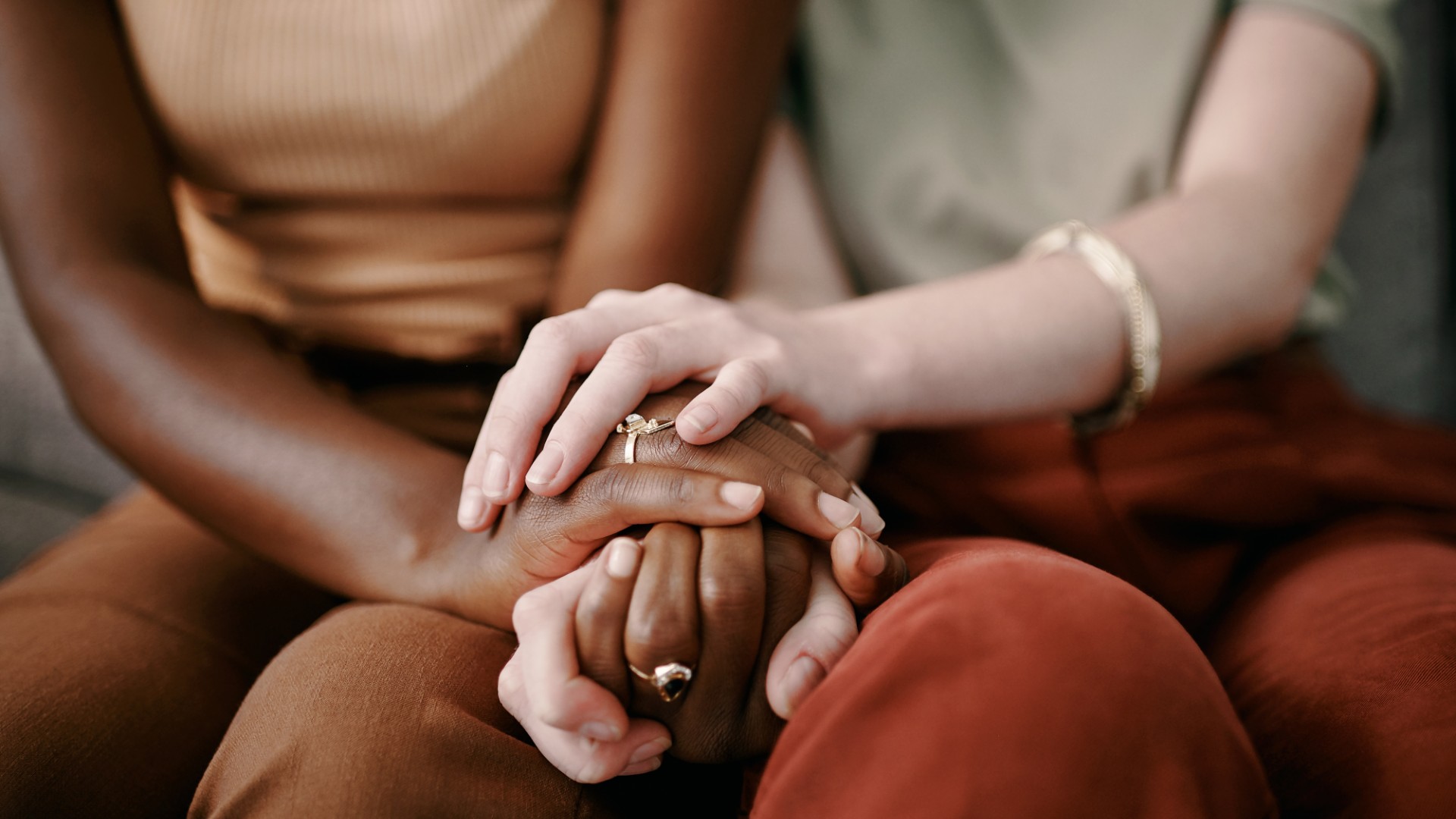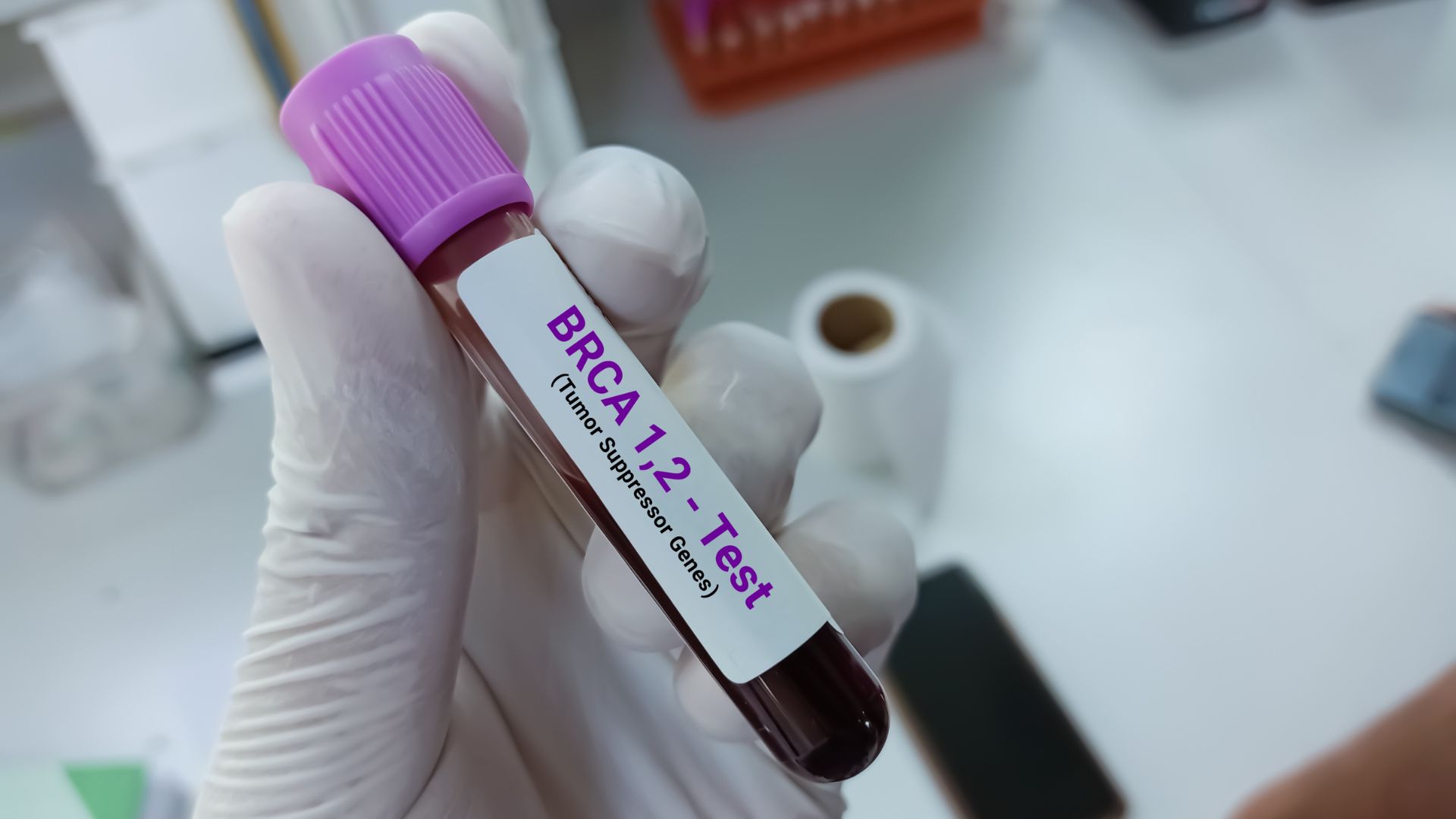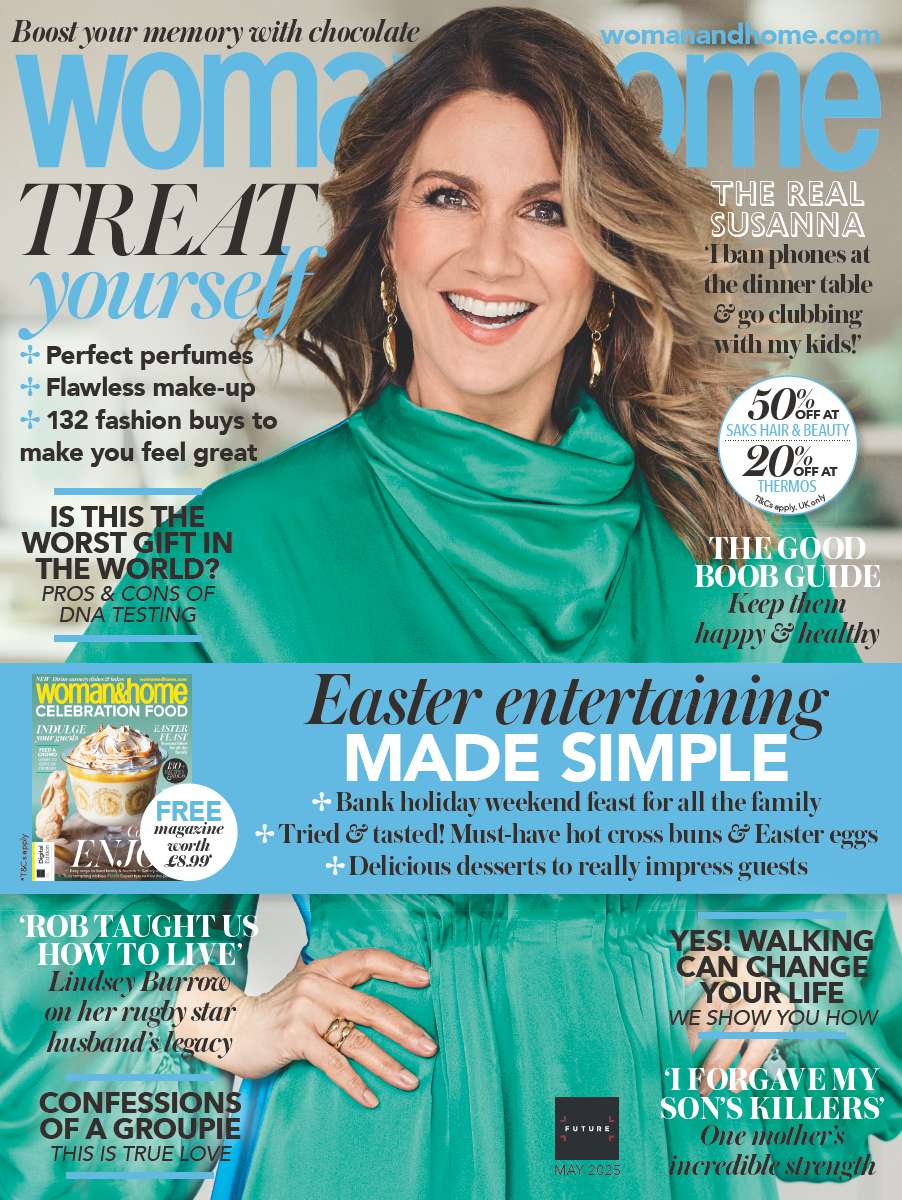Could this be the worst gift you ever give? Why DNA tests can prove controversial
DNA tests are popular as presents, but they can reveal some unexpected shocks. We speak to experts and test takers who have had different outcomes

Sign up to our free daily email for the latest royal and entertainment news, interesting opinion, expert advice on styling and beauty trends, and no-nonsense guides to the health and wellness questions you want answered.
You are now subscribed
Your newsletter sign-up was successful
Want to add more newsletters?

Daily (Mon-Sun)
woman&home Daily
Get all the latest beauty, fashion, home, health and wellbeing advice and trends, plus all the latest celebrity news and more.

Monthly
woman&home Royal Report
Get all the latest news from the Palace, including in-depth analysis, the best in royal fashion, and upcoming events from our royal experts.

Monthly
woman&home Book Club
Foster your love of reading with our all-new online book club, filled with editor picks, author insights and much more.

Monthly
woman&home Cosmic Report
Astrologer Kirsty Gallagher explores key astrological transits and themes, meditations, practices and crystals to help navigate the weeks ahead.
Not that long ago, family secrets had every chance of staying that way – until the boom in DNA testing. It was 25 years ago that the first genetic genealogy tests were offered to the public. Since then, 40 million people worldwide are thought to have tested their DNA ancestry through companies such as Ancestry, MyHeritage and 23andMe.
While some want to build their family tree, others are trying to find parents, siblings and other relatives, particularly if they’ve been adopted – like the twins separated at birth who found each other years later.
We’ve seen amazing stories of emotional reunions on TV shows like Long Lost Family, which paint a picture of pure joy. There are medical DNA tests too, which can reveal genetic markers for inherited diseases.
However, there have also been some shocks. Actor John Simm found out his dad was not his biological father when he went on ITV’s DNA Journey late last year. He was, in fact, the result of a short-lived affair his mum had with a married man.
"It spun my world, and everything I thought I knew wasn’t real. It turned out to be such a massive thing in my life," said John, who admitted he was relieved that his dad, who brought him up, had died a few years beforehand so would never know the truth.
Nowadays, discovering your family history doesn’t require endless hours of heritage tracing. In fact, it can be as simple as a saliva test. Costing as little as £150, DNA tests are increasingly popular as presents. But with an enormous and growing database, you could find out more than you bargained for.
Possible repercussions
Psychotherapist Susie Masterson warns against giving DNA tests as presents. "It is a real Pandora’s box. The difficulty is if it reveals something you weren’t expecting. If you genuinely think you are related to your parents and a test contradicts that, it can really disrupt family dynamics and lead to disharmony.
Sign up to our free daily email for the latest royal and entertainment news, interesting opinion, expert advice on styling and beauty trends, and no-nonsense guides to the health and wellness questions you want answered.
"It can be difficult to have conversations about the discoveries that come to light through a test result," says Susie, who often deals with issues from DNA tests in her therapy room. "There have been conversations where things like affairs and adultery have been denied, and that has led to rifts."
Successful reunions can also be difficult for the people who are not as invested. "If you are intent on forging a new relationship discovered from DNA testing, it can result in not paying attention to existing ones, whether it is adopted parents or a partner," explains Susie.
"That is a kind of rejection and can be really difficult. There is no way things can stay the same, and that is not something to be underestimated."
Here, take a look at some of the unexpected DNA test results people have had, allowing them to meet the parents they never knew about and even helping save lives.
'The truth has fractured my family'
When her ex Steve (not his real name) got in touch to say he didn’t believe he was their son’s father, Carol (not her real name), 58, was furious.
"Steve and I split up when I’d told him that I was pregnant, and I then got back together with my previous partner Alan (not his real name), who was the father of my daughter," says Carol.
"Years later, Steve very unexpectedly wrote and asked our adult son to do a DNA test. I felt upset and indignant but had no hesitation in telling my son we should get the test done – and I went out straight away and bought the test kit for him.
"The DNA results showed that Alan was in fact his biological father. I couldn’t believe it. I was pregnant when Steve and I split up, but I must have lost the baby and become pregnant again very quickly. Nobody questioned the dates at the time.
"It was a shock and it has been difficult for my son, as he’s now not in touch with either man. My relationship with Alan broke down some years ago.
"Ironically, I bought the DNA test because I had no doubts about the result. I wanted to confirm it to my son so he didn’t have a question mark in his head. The only silver lining is that now he knows he and his sister have the same parents, it has brought them closer."

'I found my birth family'
Sarah Wellband, 61, a remedial hypnotist at Out of Chaos Therapy from Lincolnshire, was adopted as a baby. She explains what it meant to discover her half-sisters and half-brother.
"I had a reasonable childhood but I wasn’t close to my adopted parents," says Sarah. "I was always curious to know where I came from, whose looks I had inherited and where my personality came from.
"In 2000, when I was 36, I tracked down my birth mother through the usual routes, and we have a good relationship.
"All she could tell me about my father was that he had been in the UK with the American army. I was conceived in December 1962 and he left a few weeks later, before my mother even realised she was pregnant.
"I did a DNA test with Ancestry a few years ago but nothing came up. It was only in February 2023 that I realised I could upload the results to MyHeritage and have a much wider search. Very soon, I got an email saying I had 25% matches with two women – one aged 80 and one a little younger than me – in California. They were my aunt and half-sister.
"Within half an hour, I had used the internet to figure out who my father was. I emailed him and, when there was no reply, I contacted my half-sister and said, ‘I don’t want to drop an unexploded bomb but I think we are related.’
"She replied a few days later saying, ‘We had no idea.’
"My father, Marvin, was in the last stages of dementia and couldn’t even speak, so I realised time was short. I flew out to Los Angeles the following month, and met him as well as my two half-sisters and half-brother. They were really open. They were brilliant, and still are.
"I was able to hold my father’s hand and talk to him. He died just a few weeks later, so at least I got the opportunity to see him and spend some time with him.
"For anybody who is adopted or who doesn’t know one of their parents, there is always a curiosity. You always wonder, ‘What is the other part of me?’ Now the circle has been closed."
'A DNA test saved my life'

Nova Cobban, 46, had a very different kind of surprise when a health and wellbeing DNA test she did to help discover the root of her gut problems revealed that she had the BRCA2 gene mutation. Her risk of developing breast and ovarian cancer was 80%, and she was advised to contact her GP.
"The GP was brilliant. She said they would have to check the tests but they put me on a pathway to deciding whether I wanted to have preventative surgery or not. They didn’t push it, but they did say it was the best thing for my future," Nova says.
"I had always thought the risk of breast cancer came through the mother’s line, but it actually came through my dad’s line. His mother had died of breast cancer aged 40. He told me that her mother had also died of breast cancer, but he had wrongly thought the gene mutation had died out with him.
"I found out about four years ago, and had my tubes and ovaries removed, then about nine months later, I had both my breasts removed and reconstructed. My risk is now the same as that of anyone who does not have the gene mutation.
"It has been a bit of a journey but having a DNA test saved my life – 100%."
What to think about before a DNA test
Psychotherapist Susie Masterson MBACP says:
- Is this something you have discussed with family or friends, or are you doing it on a whim and as a solo project? Talk to those who know you well to get their perspective.
- Respect and consider existing relationships, and how any new information could impact the family dynamic and the people around you. Consider how you are going to talk about that with them.
- You need to have an idea about how much information you are willing to receive and prepared to share – it is about privacy.
- Ask yourself how much information you want to know, how long will you keep going and where might that end.
- Anyone thinking of giving a DNA test as a gift should consider why they are doing that. Certainly, don’t give one as a surprise; instead, have a discussion with the person first.

This article first appeared in the May 2025 issue of woman&home magazine. Subscribe to the magazine for £6 for 6 issues.
Jackie is a freelance writer and editor with over 25 years of experience working in editorial roles at daily newspapers and magazines including Good Housekeeping, Woman’s Own and the Daily Mail.
You must confirm your public display name before commenting
Please logout and then login again, you will then be prompted to enter your display name.